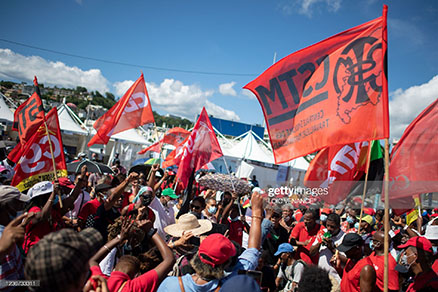Political Structure of Martinique
Martinique is an overseas territorial collectivity of France, meaning it operates under the French Republic while having a degree of administrative autonomy. Its government system blends French national laws with local governance tailored to its Caribbean context.
1. Status Within France
- Officially: “Collectivité Territoriale de Martinique” (CTM)
- Since 2015, Martinique merged its regional and departmental councils into a single local government body.
- It is represented in French Parliament and subject to French and EU laws.
2. Key Institutions
a) Executive Council (Conseil Exécutif)
- Equivalent to the executive branch of government
- Headed by a President of the Executive Council
- Oversees daily administration, economy, education, and transport
b) Assembly of Martinique (Assemblée de Martinique)
- 51 elected members
- Responsible for law-making at the local level: budget, infrastructure, culture, health, and economic development
3. Main Political Figures
- President of the Executive Council – Head of the local government
- Prefect (Préfet) – Appointed by the French government; represents the French state in Martinique (controls police, justice, and national affairs)
4. Elections and Democracy
- Citizens vote in:
- Local elections (for CTM Assembly)
- French national elections (Presidential, National Assembly)
- European Parliament elections (as EU citizens)
- Voting age: 18
- Electoral system: Proportional representation and direct voting
5. European Union Membership
- As an overseas department of France, Martinique is:
- Part of the EU
- Uses the euro (€)
- Eligible for EU development funds
6. National vs. Local Roles
| Domain | Managed By |
|---|---|
| National security, justice | French Government |
| Local transport, culture | CTM (Martinique Government) |
| Education (partially) | Shared |
| Tax collection | French Tax Authority |
Political Parties
Martinique has both local parties and French national party branches. Key themes include:
- Autonomy vs. centralization
- Social and economic development
- Environmental protection



